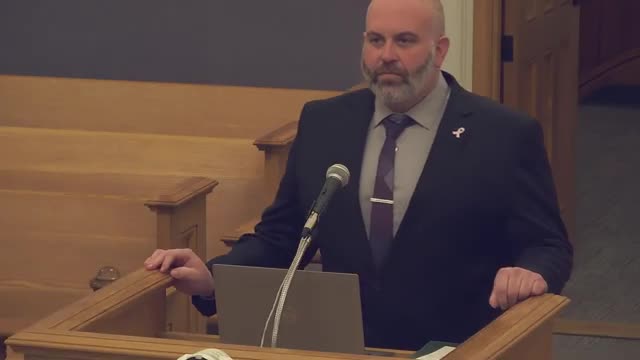Jefferson County committee endorses loan to repair transfer-station tipping floor
Get AI-powered insights, summaries, and transcripts
Subscribe
Summary
County staff described worn concrete, collapsed leachate drains and a plan to apply a fast-curing compound and finance the work through an enterprise-fund loan with annual payments of about $120,000 for 10 years; legislators approved authorization for the capital project and agreement with an infrastructure contractor.
Jefferson County staff presented plans to repair extensive wear at the county’s commercial transfer station, saying the tipping floor and leachate collection system need immediate work and that the county will finance the repairs through the enterprise fund.
The presentation to the General Services Committee laid out safety and operational concerns and a financing proposal. “Our goal each year is we at least want to break even,” Kyle, a county staff member, said, describing the transfer station as an enterprise fund that must cover staff, vehicles and maintenance while supporting capital investment.
County staff told the committee the transfer station was originally built in 2011 and has handled more than half a million tons of solid waste since then. In 2024, the facility handled roughly 44,000 tons when construction and demolition (C&D) material is included, and about 6,000 tons of recyclables, the presentation said. Staff said the original 6-inch concrete floor has worn down to exposed rebar in places and that the leachate collection drain required by DEC has partially collapsed.
The plan presented calls for a contractor that specializes in transfer-station floor repairs to apply a self-leveling, high-strength compound over the existing floor. Staff said the contractor would work over a weekend (arrive Friday, reopen Monday) to minimize downtime, and the product comes with a 10-year guarantee. Kyle said similar applications have been used at other facilities, including a North Marine transfer station that staff cited as a reference.
County staff emphasized safety and continuity of operations as advantages of the proposed approach: moving to an excavator-based material handler and restoring floor pitch to reduce clogging of the leachate drains. “Employee safety” and avoiding extended downtime were described as primary benefits of the contractor’s method and of switching away from the older stationary handler that had high maintenance costs, Kyle said.
On financing, staff proposed a general-fund loan to the enterprise fund with a 3.5% interest rate and annual payments of roughly $120,000 for 10 years. Staff and the treasurer’s office said the first-year interest would be prorated from the anticipated board action on March 4; staff estimated the first-year interest at about $29,000 with the next year around $35,000 and annual payments thereafter.
Committee members asked about comparative costs (concrete vs. the compound), contractor logistics and how work would avoid disrupting haulers. At least one legislator urged clarity on quantities and exact contractor pricing; staff said they would provide an amortization schedule and follow up with exact material-yardage and contractor quotes.
Legislator Reed commented that separating commercial and residential traffic with the second scale will be a safety and operational improvement for the facility and praised staff work on the project.
The committee approved authorization to finance the enterprise-fund capital project and to enter an agreement with the infrastructure repair service identified in the resolution. The formal resolution to finance the enterprise fund capital project and authorize an agreement with the infrastructure repair service was moved and seconded and carried by voice vote.
Looking ahead, staff said they expect to complete floor work by spring to early summer, contingent on contractor scheduling and approval of the capital authorization. Staff also reported progress on a second scale and kiosks intended to separate commercial haulers from residential traffic and reduce congestion on Route 12.
Clarifying details provided during the meeting included the facility’s approximate footprint (about 4,800 square feet with a roughly 60-foot-wide opening), staff size (13 employees at the facility), and the proposed loan terms (3.5% interest, approximately $120,000 annual payment for 10 years). Staff said the new compound application would typically add 4–6 inches in low areas and would be mixed on-site.
The committee discussion directed staff to provide an amortization schedule and additional contractor pricing details for committee review. No amendment to the resolution was recorded; the committee voted to approve the financing and agreement authorization as presented.
